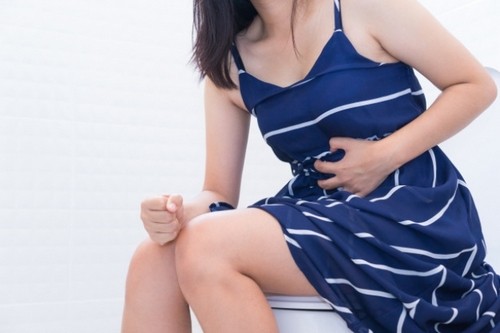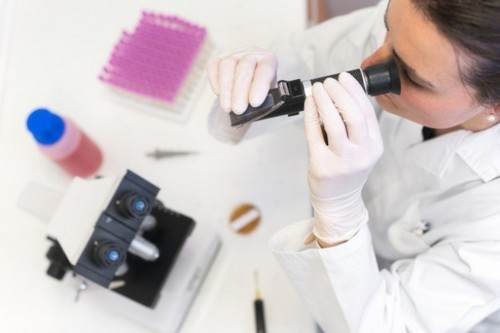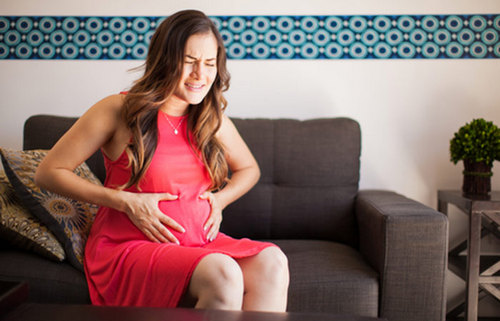Bacteria such as E. coli are usually to blame. Normally, they live on your skin and intestines. But if they enter the urethra, and then into the bladder, cystitis may develop.
Cystitis is an inflammation of the bladder. One of the most common inflammatory diseases of the genitourinary organs, which presents a serious medical problem. Most often, women suffer from cystitis.
This is due to our anatomical features: the urethra in women is short and wide, and therefore the infection through it enters the bladder much easier than in men. About 20-25% of women tolerate cystitis in one form or another, and 10% suffer from chronic cystitis. Moreover, these figures are growing every year.
Here are some symptoms that may indicate a disease:
- Burning or pain during urination.
- The desire to constantly urinate.
- Painful fatigue and low fever.
- Frequent urination with a small amount of urine.
- Pain or pressure in the lower abdomen.
- Dark, cloudy urine that has a strong odor.
If you have any of these symptoms, you must urgently make an appointment with your doctor.

Less commonly, the cause of cystitis can be:
- Chemicals in personal care products such as bath foam, soap and spermicides.
- Chemotherapeutic drugs.
- Damage caused by bladder surgery or catheter insertion.
- Radiation therapy during cancer treatment in the pelvic area.
In some cases, a condition called interstitial cystitis occurs when the bladder is constantly inflamed. Doctors are not sure what caused this disease, but treating it is much more difficult than ordinary cystitis.
Cystitis: diagnosis
At the appointment, the doctor will conduct a physical examination and ask about your symptoms.

For further diagnosis, you will need to pass:
- Urinalysis for bacteria, blood, or pus in the urine.
- Bacteriological culture of urine to find out what type of bacteria it contains.
The following procedures may also be required during the examination:
- Cystoscopy. The doctor inserts a cystoscope, a thin tube with a camera, into the urethra to identify problems or take a tissue sample for further examination (biopsy).
- Ultrasound, computed tomography, and MRI can show tumors, kidney stones, and other problems.
- Intravenous urography. This is an x-ray that uses a contrast dye to get images of the kidneys, ureters, and bladder.
- Mixed cystography. The doctor injects dye into the bladder to check if urine flows back from the bladder to the kidneys.
Cystitis: treatment
Bacterial cystitis
If the cause of your cystitis is bacteria, your doctor will likely prescribe antibiotics for you. You will begin to feel better in a day, but be sure to take all the medications as directed. How long you should take them depends on your overall health, frequency of infection, and type of bacteria.
If you are a woman in menopause, your doctor may also suggest a vaginal cream with estrogen.
Interstitial cystitis
It is more difficult to treat, as doctors do not know the reason, but the following steps often bring relief:
- Avoiding spicy foods and foods high in potassium.
- Quitting smoking and drinking alcohol.
- Bladder training, that is, a change in the urine habit, so you don’t have to go to the toilet so often.
- Taking medications that relax the bladder and eliminate some symptoms.
- Soft electrical impulses for nerve stimulation.
Other types of cystitis
If you have cystitis caused by soap, bath foam, or other hygiene products, you will need to avoid these products.
If you are undergoing chemotherapy or radiation therapy, your doctor may prescribe pain medication and suggest you drink more water to wash your bladder.
Cystitis: prevention
There is no reliable way to prevent cystitis, but some doctors advise:
- Observe personal hygiene and sexual hygiene: during menstruation, change tampons and pads more often. Wipe properly after bowel movements – front to back for women. You can not go directly from anal sex to vaginal.
- A woman should urinate at least 5 times a day, as the infection easily enters the bladder if the interval between urination is very long. Try to urinate after intercourse.
- Do not wear too tight tight underwear.
- Dress warmly, avoid hypothermia, especially in the pelvic area.
- Beware of swimming in polluted ponds.
- In time to treat carious teeth.
- Remember that previous urological, gynecological or venereal diseases (urethritis, gonorrhea, adnexitis, endometritis and others), especially if you have not been treated or treated on your own, as well as chronic foci of infection in the body can trigger cystitis.
- If you have sedentary work, break off every hour and a half and five minutes, just wait or walk.
- Eat regularly and fully.
- If you suffer from constipation, then eat more vegetables, fruits and coarse fiber foods, take laxatives, etc. If you have eaten something very spicy, a lot of fried or pickled, drink this food with plenty of water.
- Take vitamins.
- Drink less alcohol.
- Do not bring yourself to nervous and physical exhaustion.



